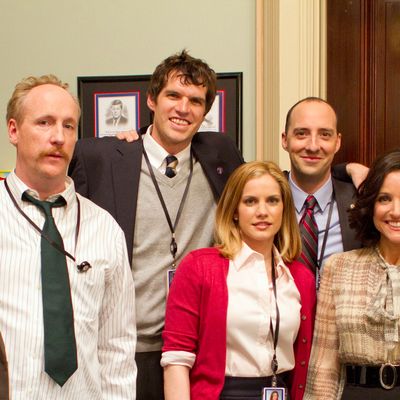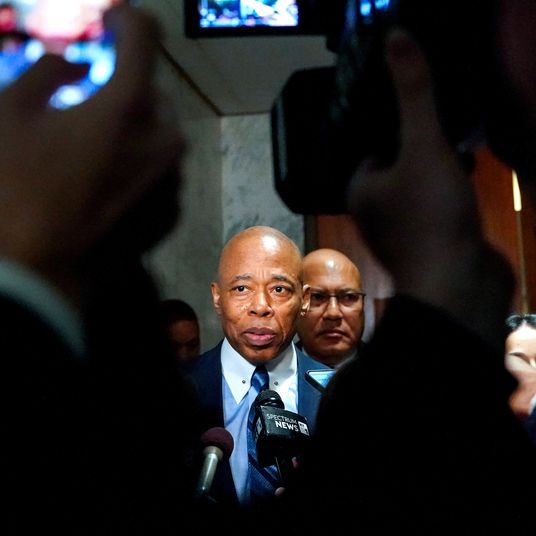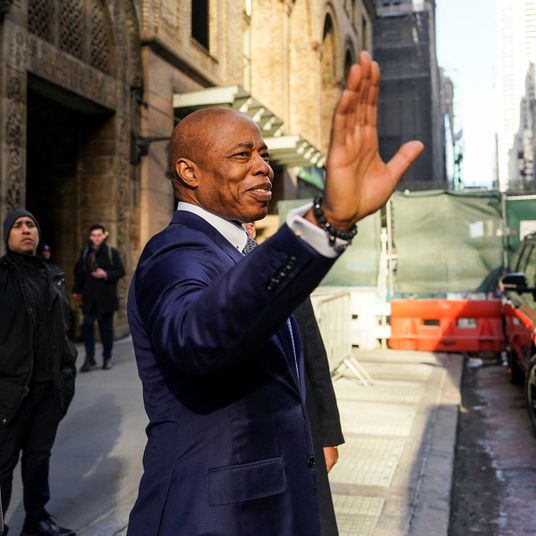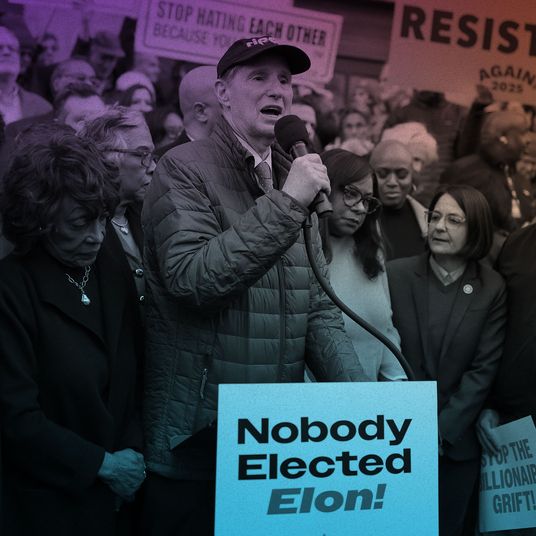
The classic Washington satire imagines a city besotted with corruption — evil, potent forces manipulating the government to their will. The idealistic counterpart to that type is The West Wing, but it shares the basic assumption that the characters wield real power. The staff would concoct a brilliant strategy, or the president would deliver a forceful speech, and everything would change.
Veep breaks from the form because, rather than describing either the use or abuse of power, it is a Washington satire about powerlessness, which is both the source of its humor and the quality that makes it such a dead-on portrayal of Washington. (Our Frank Rich is executive producer, though I’ve never discussed it with him.) Veep makes a point of refusing to identify Meyer’s party, though her Democratic affiliation is blindingly obvious. The overwhelming Zeitgeist of futility perfectly captures the liberal sense (if not the reality) of the Obama years.
On Veep, Vice-President Meyer delivers a speech and nothing happens at all. Nobody is listening, unless perhaps a blogger seizes hold of a stray line and a firestorm of controversy overwhelms whatever it is she intended to accomplish. Meyer and her staff are not titans, sifting through all the secret information unavailable to we viewers. Just the opposite: They sit in an information vacuum, desperately attempting to find out what the president is thinking, or what rumors are flying around the web.
The real insight of the show is that the inevitable failure of everything does not come about because Meyer and her staff are buffoons. (Most of them aren’t.) What’s buffoonish is the system itself — the stupid and trivial media, the utter futility of trying to communicate sensible policy to an America that, unlike the country imagined by Aaron Sorkin, does not hang on every word uttered by its public servants.
Meyer’s passion is a “clean jobs” bill. She deputizes her assistant to marshal arguments against it, and her face slowly and hilariously falls as he obligingly thunders against “class genocide” waged by liberal elites against regular Americans. It’s an all-too-real recapitulation of the way the actual cap-and-trade law played out in the court of public opinion. Meanwhile, a liberal senator vows to kill it because it reserves one slot on a board for an oil person, and oil lobbyists threaten to destroy it anyway. Of course, it dies. They fail to pick up on rumors of its death because, in their Google search on Meyer, they didn’t search on the correct disparaging nickname for her floating around the blogosphere.
Meyer also touts her support for filibuster reform, which has symbolic resonance. The filibuster is the most concrete cause of governmental paralysis, and the premise of Veep is that it is the inherent dysfunction of the system, not the character flaws of the people in it, that cause it to fail. Some of them may be cynical, backstabbing creeps, but their cynical, backstabbing creepiness merely reflects an adaption to an insane system. The characters are all the sort of people who never missed an episode of The West Wing and got into their line of work so they could be like a character in The West Wing, only to discover that nothing works the way it’s supposed to.
As Amy’s character tells Dan, “You have put this office in a salad spinner of fuck.” She says it without anger or surprise. That is the show’s whole working premise about Washington — not a nest of corruption, not a dramatic center of heroic drama, but a salad spinner of fuck.






























